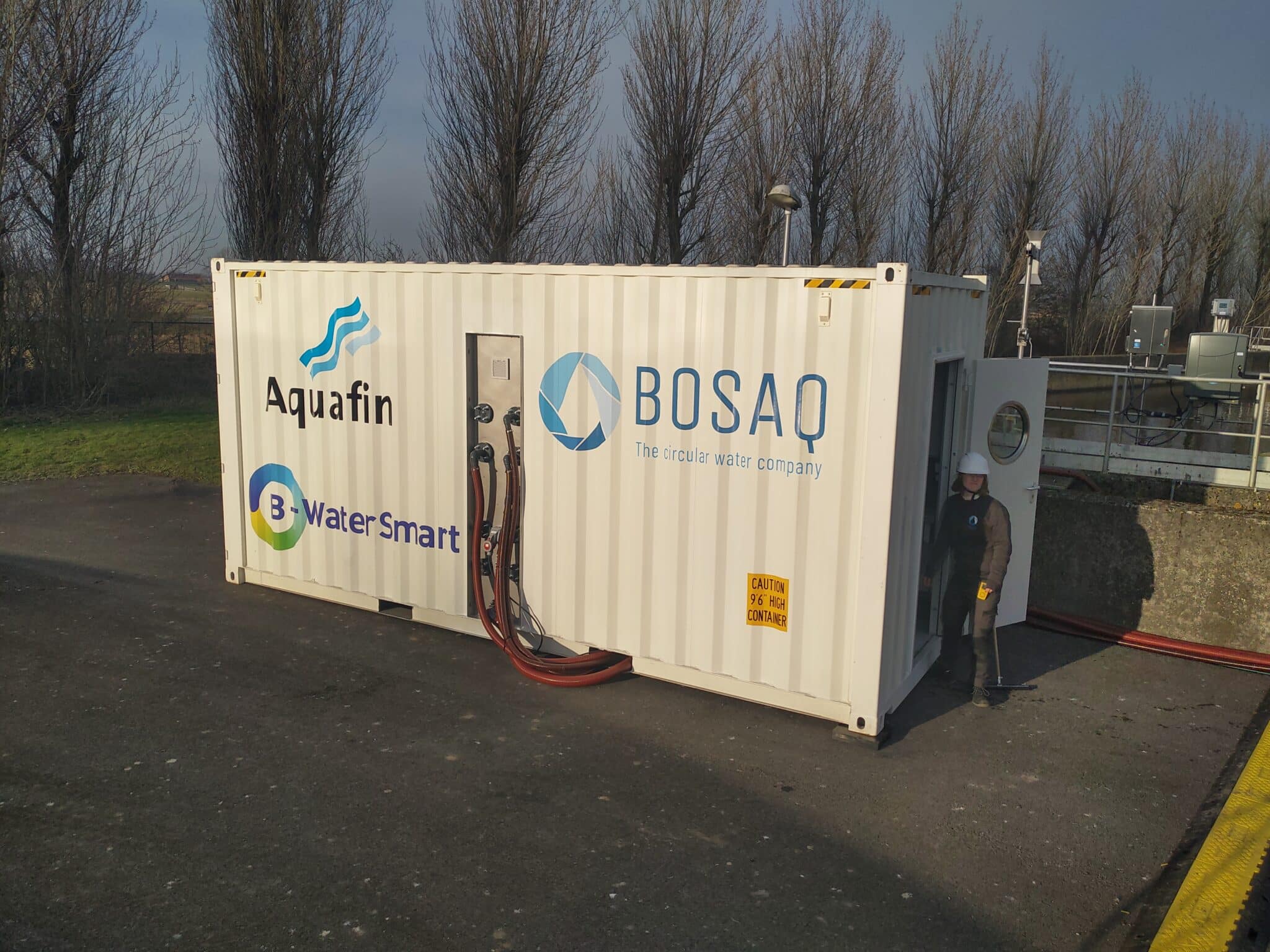

Aquafin and BOSAQ have partnered to successfully manage the available water bodies to reduce the pressure on groundwater sources and pave the way for circular water loops versus the linear water use model, currently in practice.
Today, the water is being used in a linear model. Water is extracted from ground or surface water sources within many cases a limited (seasonal) replenishment potential and directly subject to effects of climate change, This water is then treated, travels (in some cases) large distance, to easily flow through our taps. According to World bank, freshwater is used globally for all human activities from irrigation of fields (agriculture over 70%) to industrial processes (companies 15%) to flushing the toilets, cleaning dishes etc (domestic use 12%). In most of the cases, this water is used only once, and then drained into pipes and in 80% of the time, without treatment to the rivers or seas where it mixes with salty water which is even more difficult to recycle.
Population growth, rapid urbanisation, coupled with erratic weather conditions (heatwaves, droughts, floods) due to climate change is negatively impacting the availability and access to water. To combat this challenge, European research project B-Water Smart was launched for transformation to water smart economies and societies. Flanders Region acts as one of the 6 living labs, where Aquafin, De Watergroep, KWR, PSKW, Stad Mechelen, and VITO are working together on creating smart and robust water systems. The project received funding from the European Union's Horizon 2020 programme.

BOSAQ Technology partnered with Aquafin to build circular water systems for use in alternative water sources for drinking water production and to secure the irrigation water supply through use of rainwater. Our engineers collaborated with Aquafin to provide the situation by assessing the possible technological solutions, to design and build two innovative pilot units.
The first BOSAQ technology, Q-Drop Vikos (water reuse), has an output capacity of 1,000 liters per hour. It uses a combination of membrane filtration, and purification technologies. Q-Drop Vikos is a versatile modular container which provides flexibility to the customer to use varying combinations, of technology, depending on the quality of input water stream, and the required output water quality. This technology will be used in West Flanders, to pre-treat domestic wastewater effluent up to a source for drinking water production, thereby closing the water loop.
The second water technology unit Q-Drop Iguazu (rainwater), with an output capacity of 10,000 liters per hour, uses another purification technology to process collected rainwater from an open buffer, and purify it up to the desired water quality for subirrigation. This technology will be used by the farmers of Mechelen region for agriculture and ensure water security while prioritising the use of energy- intensive high quality drinking water for human consumption.
These projects, when implemented, will maximise water security, close water cycles, by producing safe water of required quality through use of sustainable and innovative water technology.
But these also have wide ranging impact beyond the current pilot phase and have the potential for upscaling because to the economic beneficial return of water reuse. These are creating a paradigm shift in the mindset i.e., to use water in a sustainable circular way and to be the guideline for the development of a smart water management system in Flanders for the coming decades.



